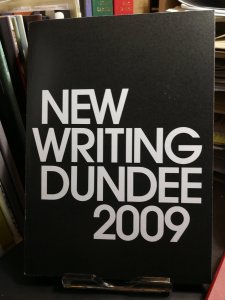
Walking to work, I look up at the sky and watch a flock of pigeons flying high above me. They are silhouetted against vast, pure blue. In a moment, they are gone. Where did that moment go?
Every moment is a paradox. Alone, they barely exist. And yet, together – they make up the flow of our lives. Maybe that’s why we’re always trying to capture them, in conversations and snapshots and tweets. To hold on to bits of life which often seem too vital to vanish.
Words provide us with one way to try to hold on to moments, and perhaps understand what happened. Yet, words are also a paradox. Alone, they may say little or nothing. Yet, strung together into speeches and books and proclamations – words can help to raise armies and revolutions. Words help us to win freedom from tyranny or they can be used to hold us in chains. Words can help us to change the world.
Sit any day in a busy café and listen. From out of the babble of talking all around, you will hear people using words in a thousand different ways. A deeply concerned woman in a red woolly hat leans forward, her eyebrows rising like exclamation marks. “She never did! That’s terrible! What should we do?” Or, the pale young man with eyes as bright as a TV set in the dark: “I saw a programme the other night about Stephen Hawking. It made me think; so, I started reading A Brief History of Time.” And the words and the moments mix together so closely – they almost become one thing.
A lifetime ago, I listened in a bus-station cafe and wondered about words and moments in a similar way as I am doing now. Then, I had recently escaped from 10 hour shifts in an old textiles factory and I was at Dundee University. I had a lot of time to read whatever I wanted to. Or, I did when I wasn’t standing on the Timex picket line most days for a year; or, stacking shelves in a supermarket on night shift. When I could, I read about the ideas of philosophers, scientists, and writers – about language and time and what it means to be human; and I tried to form my own thoughts.
I won a Philosophy prize for writing about not really knowing what Art is. It still strikes me as strange and fascinating that what we don’t know can sometimes be as important to us as what we know. Questions becoming quests.
In 2009, a poem I wrote was published in a local anthology. The poem grew out of the experience of being in my house and looking at photographs on my phone and remembering moments from when they were taken.
Photographs
In a candle’s light, the light in the sky
Over Broughty Ferry pier
Smiles, and you smile too,
Phoning from some other world.
When you go, the room empties of air
So I walk to the kitchen – to breathe and stare
Out to the hidden garden, protected
By ranks of sentry poles.
I turn to black eye holes
Where once one hundred windows
Stared at the Tay from haunted Halleys,
And twenty-four hour drumming
Of looms from floors far below
Shook the cool, white lab.
We threw a dice: a six, a four,
Wondering perhaps if rain would fall.
I smell the freshly picked daffodils
As Thom Gunn smokes, watching us
From a garden that is also not here.
And crowds flow past, if flowing is
A thousand colours and trajectories.
A café, with window-shaped shadows,
Dazzles, enthralling with blasts of light.
In a text, you send me a picture –
A bush, skinny from years before,
Now fat and blazing with reds and greens.
Sometimes, the world
Is exactly as it seems.

Those moments were originally from my life, then they became memories, and later -words on a page. Halley’s’ was the textiles factory where I worked. From a deserted top floor, you could hear the huge looms from lower floors hammering away, churning out miles and miles of polypropylene. Thom Gunn is my favourite poet, and the photo of him in a garden in California was in a book I had for years. Unnamed in the poem but central to it is Isobel. Now we are married, but then we lived separately. It is to her that the first part is spoken.
It’s easy to wonder about words and moments, language and time, without ever coming to any conclusion. It’s more satisfying, I’ve found, to explore such subjects further and try to describe what you find out, and extend what we know. I’ve tried to do that in various ways: through poems, photographs, and most of all in a lot of writing which has not yet been shared widely. Through meandering little essays like this one, I aim to remind myself: exploring the nature of words and moments is as good a quest as any! For the last few years, I’ve been diverted from this quest by another: finding anti-democratic spies. But I’ve never given up on the first quest: and two of my planned books describe my journey.
Harvey Duke 


Oh harvey sweetheart your writing sends shivers down my spine! Beautifukl, truly beautiful. Can I share this on my wee networking group?
LikeLike
No problem June. Share away.
LikeLike